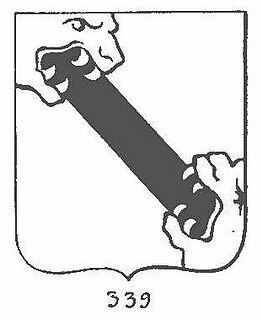Carlos is a masculine given name, and is the Portuguese and Spanish variant of the English name Charles, from the Germanic Carl.
José Hernández may refer to:
Luis is a given name. It is the Spanish form of the originally Germanic name Hludowig or Chlodovech. Other Iberian Romance languages have comparable forms: Luís in Portuguese and Galician, Lluís in Aragonese and Catalan, while Luiz is archaic in Portugal, but common in Brazil.
Miguel is a given name and surname, the Portuguese and Spanish form of the Hebrew name Michael. It may refer to:
Nunez is the anglicized form of the Spanish surname Núñez. The Portuguese variant is Nunes. Notable people with the name include:
Estrada is a Spanish surname and Portuguese term. Notable people with the surname include:
Carlos Hernández or Hernandez may refer to:
Juan is a given name, the Spanish and Manx versions of John. It is very common in Spain and in other Spanish-speaking communities around the world and in the Philippines, and also in the Isle of Man. In Spanish, the diminutive form is Juanito, with feminine form Juana, and feminine diminutive Juanita.
Pancho is a male nickname for the given name Francisco. The feminine form is Pancha. It is also sometimes used as a surname. Notable people with the name include:
Castillo is a Spanish surname meaning "castle".
José Martínez may refer to:

Martínez is a common surname in the Spanish language. Martínez is the most common surname in the Spanish regions of Navarre, La Rioja, Cuenca and Murcia. There are also variations such as San Martin and Martín.
Blas is mainly a Spanish given name and surname, related to Blaise. It may refer to
José Castillo may refer to:
Moreno is a Spanish, Portuguese, Catalan, French, and occasionally, an Italian surname. It may refer to:

Tovar, usually preceded by the particle de, is a surname that was adopted in the Middle-Ages by a Castilian noble house that received the lordship of the village of Tovar from Fernando III. It has since spread to several Spanish and a few Portuguese branches.
Cabrera is a Spanish surname. It is the feminine form of "cabrero", meaning goatherd. Notable people with the surname include:

Sosa is a Spanish surname of Portuguese and Galician origin, originating from the Portuguese Sousa. The Sousa Family is of noble and Visigoth origin. Portuguese people brought the Sousa surname to Galicia, and from there it spread in the former Spanish colonies. Sometimes, both variants are used to refer to the same person or family in old texts.
Olivo is both a Spanish, Italian, and French surname and a masculine given name, and it referred to someone who grew olives. Notable people with the name include:
Blanco is a surname of Spanish origin, meaning "white". Notable people with the surname include:
This page is based on this
Wikipedia article Text is available under the
CC BY-SA 4.0 license; additional terms may apply.
Images, videos and audio are available under their respective licenses.


